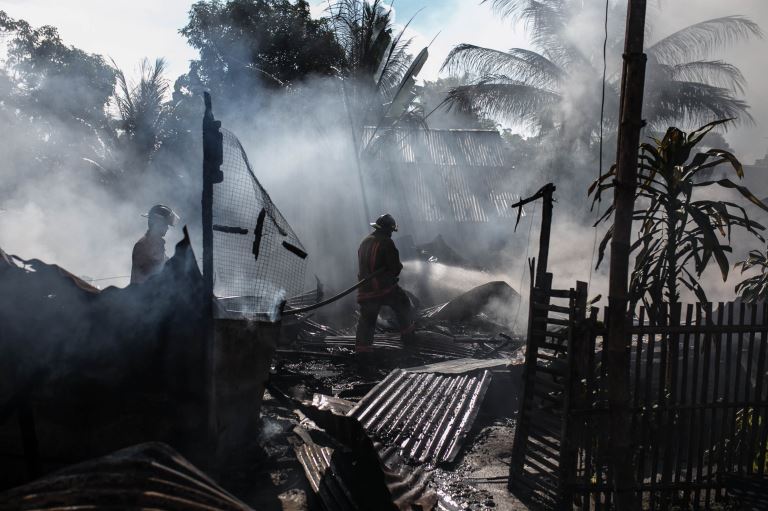
What You Need to Check in a Disaster Recovery Before Investing
pThere are several things you need to look at before investing in disaster recovery cost total downtime data integrity response procedure ensuring no redundancy simplicity and data sensitivity If this feels like the article you have been looking for
Anyone who wants to invest in disaster recovery should know what to check before investing. We have researched the subject and developed this informative article to help you determine what to check before investing in disaster recovery: this will be a great read!
There are several things you need to look at before investing in disaster recovery; cost, total downtime, data integrity, response procedure, ensuring no redundancy, simplicity, and data sensitivity. If this feels like the article you have been looking for, I will encourage you to read it till the end.
Read on to learn more about why you should hire a disaster recovery expert.
What You Need to Check in a Disaster Recovery Before Investing
Disasters happen any day, anywhere, and maybe onsite or online. They may happen to your business's physical location or disrupt your data, making your business inoperable. Most disasters are unavoidable. To ensure the continuity of your business, you need to prepare for disasters that may happen in the future.
You may opt for an in-house tech team to help with a disaster recovery plan or decide to work with a recovery consultant. Before investing in a disaster recovery plan, consider these aspects and find the best solution for your business.
1. Cost
A disaster recovery plan is a process that requires unique and modern IT machines to build and maintain. Before investing, look into the overall costs like; Hiring a tech team, buying modern IT machines, upfront testing costs, securing data costs, etc.
2. Total downtime
Being hit by a disaster, a business may even close down. When you cannot serve your clients for a long time, the clients will lose their trust in you and go to your competitor. To avoid losing your business, consider a recovery plan that will take the least convenient time to restore data for your business to run.
3. Data integrity
Your data should remain authentic before and after a disaster recovery. Your backed-up data should be as genuine as the original data was. If any aspect of your data changes during backup or recovery time, your business may incur huge losses or be sued by the affected parties. Regulatory bodies like GDPR require companies to maintain data integrity at all times. To avoid losing clients to a lack of confidence in your business, ensure minimal chances of data change during a backup.
4. Response procedure
Before choosing a way to back up your data, have a plan on how you want to respond to a disaster. The process depends on your business type. These questions can help. How would you deal with an attempt at being hacked? After data is lost, how will you restore it? How will you deal with the aftermath of a data breach? You need to consider a solid response procedure to keep your business, employees, and customers stable and at ease by showing them that you have control over things.
5. Ensure redundancy
A data center needs a relaxed environment to maintain the quality of data. With a power outage, the coolness of the IT room is compromised and may lead to data damage. You need a backup generator and a reliable fuel service provider to maintain the temperatures. Before investing, consider the readiness of your provider to back up power shortages to avoid data compromises.
6. Data Sensitivity
Your business may be involved with sensitive data. You may lose money and clients or be sued if sensitive data is compromised. Before investing in a disaster recovery plan, ensure you can fully trust the process. Security of your data may be enhanced by; protection from being stolen, encryption, protection from loss or damage, and restricting unauthorized access.
7. Simplicity
A disaster recovery plan should be simple to implement. If a disaster hits your business, you expect things to return to normal as soon as possible. It would help if you considered a recovery plan that restores your data faster and at a lower cost. A simple technique will reduce your downtime and the losses your business suffers. Check the complexity of a recovery plan before investing in it, and choose a simple one.
Why you should hire a disaster recovery expert
A disaster recovery expert will help you formulate a plan to recover your data in case of a disaster. Using an internal tech team to help during disasters may complicate the matter. Also, an in-house team cannot help recover data if a disaster, such as a fire or a storm, destroys the premises. Investing in disaster recovery services will be the best decision you can ever make for your business.
Disaster recovery experts will be beneficial to your business. They;
1. Are experienced and skillful
An expert has been making disaster recovery for years and will bring their expertise to the table. They have skills for backing up your data, encrypting data to avoid leaks, and restoring it if destroyed. They may have handled other recoveries similar to yours, thus knowing how to recover your data quickly.
2. Can do upfront disaster recovery testing
To ensure a recovery plan works properly, experts run recovery tests before a disaster happens. Testing ensures that your data is appropriately backed up and is ready to be restored in case of a disaster. It also cushions your business to use an expert in recovery testing if you change your tech employees.
3. Are dedicated to disaster recovery
Disaster recovery experts focus primarily on recoveries. When you hire experts to handle your disaster recoveries, they give their best because it's their business. And every company is dedicated to providing the best services to get repeat customers. They will handle your data recovery in a smooth, practiced manner, saving you time and money.
4. Have industry specification
According to UNCTAD, businesses should follow world protection and privacy legislation to protect their data. Experts have the specified compliance specialization depending on your location and business type and will help you stay away from legal trouble.
5. Have up-to-date recovery equipment
Disaster recovery needs special equipment to help in backups and testing of data. Investing in such equipment can cost your business more than hiring an expert. Experts have their machinery and know how to handle them.
6. Can tackle complex recoveries
Experts can handle any recovery, including the most difficult. Being dedicated to rescues help experts with the capacity to handle a complex operating system environment, like cooling your IT room, thus reducing the risk of escalating matters.
7. Guarantee data security
When working with an expert, you can have some peace of mind knowing your data is secure. They have some privacy in their work compared to in-house tech employees, where anyone can access your data. Experts know what they are doing, thus avoiding mistakes that may harm your data and business.
Qualities to Look for in Disaster Recovery Service Providers
The most important quality to consider in disaster recovery services is their expertise. Any provider you choose to work with should be ready and willing to sign the Business Associate Agreement, which is very important. The table below shows the qualities you should look for in disaster recovery service providers.
| Tier IV Data Centers | Your disaster recovery partner must offer access to the Tier IV Data Center environment. Crucial data is stored such that compliance issues are taken into consideration. |
| Service Level Agreements | Any disaster recovery service provider must have a Service Level Agreement -this guarantees if something goes as unplanned. |
| Flexible Service | A good disaster recovery partner is flexible and can quickly provide additional needed services. |
| Encryption skills | More than anything, they should be able to showcase their encryption abilities on data stored in a cloud in a way that outside forces cannot penetrate. |
Conclusion
Disaster recoveries are complicated and need planning before a disaster happens. If you lose data, you don't want to close down your business or lose clients for being inoperational for a long time. A recovery plan should be practical and flexible, depending on your business. Before investing in a disaster recovery plan, ensure you check all the above measures. Hiring a disaster recovery expert will be suitable for your business. They know what they are doing, and you can rest assured your data recovery is in safe hands. Guru solutions are experts in disaster recovery services.








